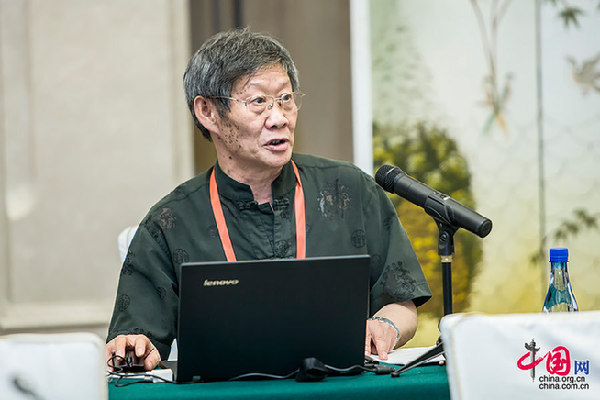Paper abstracts: He Lunzhi
 0 Comment(s)
0 Comment(s) Print
Print E-mail China.org.cn, June 27, 2014
E-mail China.org.cn, June 27, 2014
|
|
|
He Lunzhi. [China.org.cn] |
He Lunzhi
(Director, Economic Research Institute of Xinjiang University)
Author
He Lunzhi is Director, Professor, and PhD Supervisor at the Economic Research Institute of Xinjiang University; and a recipient of the State Council Special Allowance. He has been committed to education and scientific research in quantitative economics, regional economics, technological economics and systems science for more than 30 years. He has managed more than 10 state-level scientific research projects, published 9 books and more than 100 papers in domestic and international journals, and has won over 10 awards. He is a leading scholar on the state-level and provincial-level subject of "population, resource, and environmental economics"; he is responsible for Xinjiang Macroeconomic Warning System at Xinjiang research base of humanities and social sciences, and acts as Director of Social and Economic Collaborative Innovation Center of Xinjiang University. He is Vice President of the Chinese Association of Quantitative Economics, Vice Chairman of the Committee of Social and Economic Systems Engineering of the Systems Engineering Society of China, Vice Chairman of the Appraisal Committee of Senior Titles of Industrial Economics of Xinjiang, Executive Director of the Xinjiang Society of Field Statistics, and a review expert of communications for the National Natural Science Foundation of China.
Abstract
This paper is the result of the "Study on China's Energy Security and Central Asia Energy Cooperation Mechanism", a key national social science project. Based on the analysis of the energy cooperation between China and Central Asia, the paper proposes ten policy suggestions: 1.maintain and improve China's friendly relationship with Central Asian countries; 2. make full use of the Shanghai Cooperation Organization and build an effective multilateral cooperation mechanism; 3. enhance the exchange with international energy organizations; 4. create a sound internal environment; 5. improve policies and measures in China's oil reserve system; 6. expand cultural exchanges with Central Asian countries; 7. establish a specific agency to manage energy issues; 8. speed up the formulation and improvement of a medium- and-long-term plan for China's international energy cooperation; 9. establish and improve energy-related legal system; 10. establish an energy transportation channel in northwestern China.






